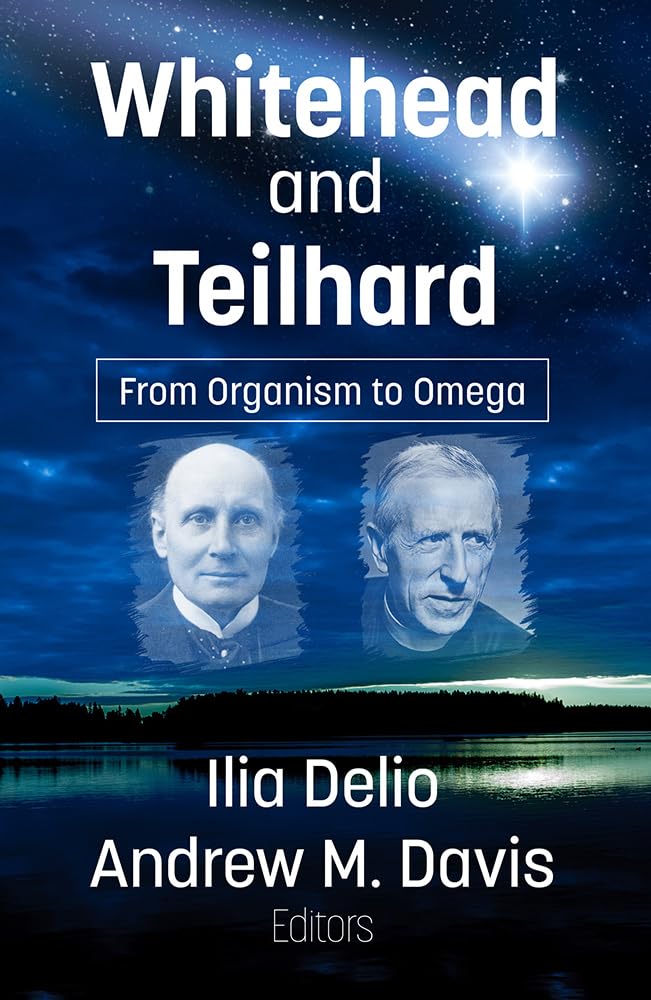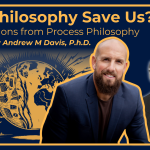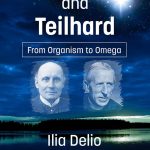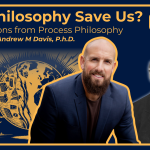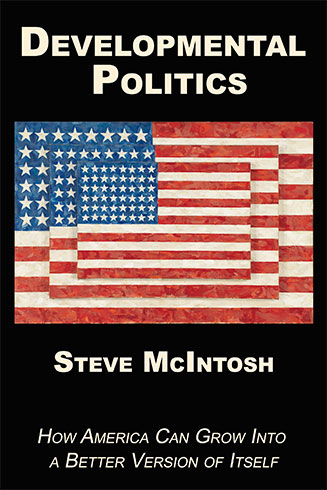NEW BOOK: Whitehead and Teilhard: From Organism to Omega
Dear Friends of Developmental Philosophy,
The works of Alfred North Whitehead (1861–1947) and Pierre Teilhard de Chardin (1881–1955) continue to inspire distinctive trajectories in theology, philosophy, and cosmology. Although contemporaries for a time, the two never had the opportunity to engage with each other’s visionary worldviews. Today, they are still largely studied in isolation. But what might emerge from a deeper integration of their ideas? How might their combined insights illuminate pressing concerns across science, religion, philosophy, and ecology?
A groundbreaking new anthology, Whitehead and Teilhard: From Organism to Omega, addresses these very questions. This volume brings together leading scholars and contemporary thinkers—including Ilia Delio (Center for Christogenesis) and Andrew M. Davis (Center for Process Studies)—to explore the profound potential of an integrative encounter between Whitehead’s process philosophy and Teilhard’s evolutionary theology.
Among the featured contributors is author and developmental philosopher Steve McIntosh, whose essay, Cultivating Noosphere Evolution in the Spirit of Teilhard and Whitehead, advances a compelling vision of how human consciousness can evolve in alignment with both thinkers’ insights. In this piece, McIntosh draws from Teilhard’s concept of the noosphere—the planetary layer of thought and culture—and enriches it with Whitehead’s metaphysical framework of value and process.
Steve argues that the noosphere is not merely a byproduct of human activity but a vital evolutionary frontier in its own right—one that humanity must learn to nurture, refine, and ethically direct. By bringing developmental philosophy into conversation with Teilhard’s teleological vision and Whitehead’s aesthetics of becoming, the essay points toward a consciously cultivated future of cultural and spiritual development.
Teilhard’s notion of the Omega Point—a culmination of evolution marked by unity, love, and spiritual convergence—finds new relevance when paired with Whitehead’s idea of a universe moving toward greater intensity of experience and beauty. Steve’s essay illuminates how this synthesis can serve not only as a philosophical framework, but as a moral and spiritual orientation for navigating the global challenges of our time.
For those interested in the evolution of consciousness, the integration of science and spirituality, or the future of philosophical theology, Whitehead and Teilhard: From Organism to Omega offers an inspiring and intellectually rigorous resource.


